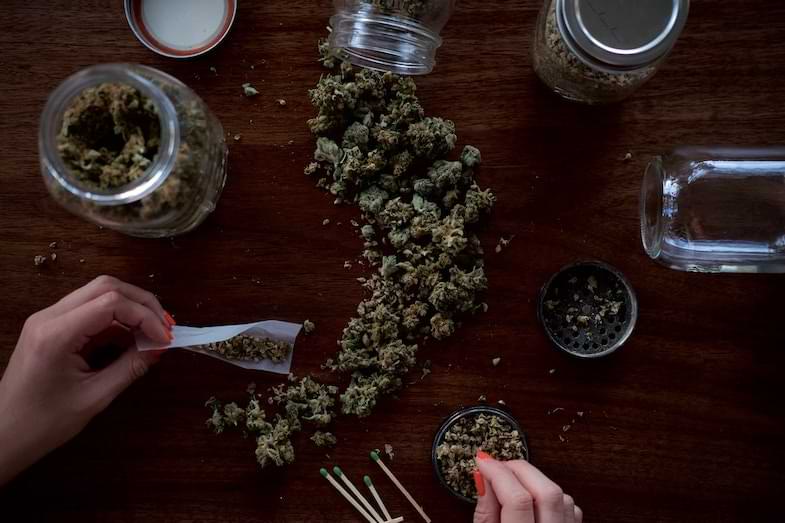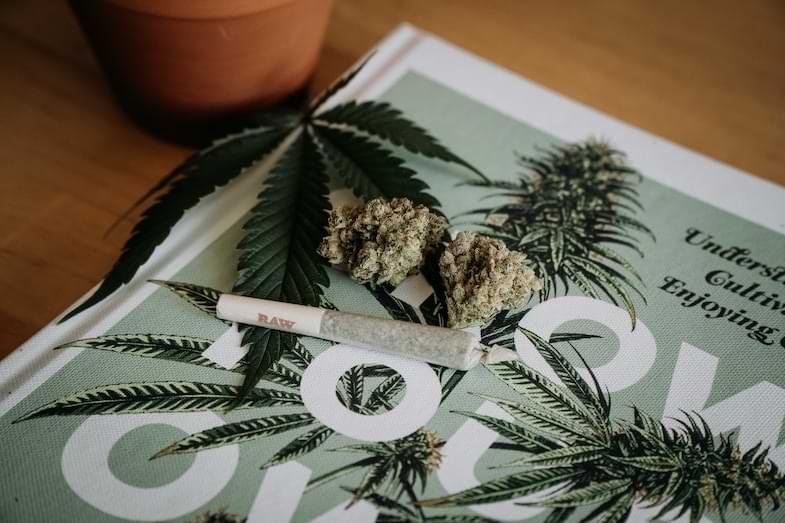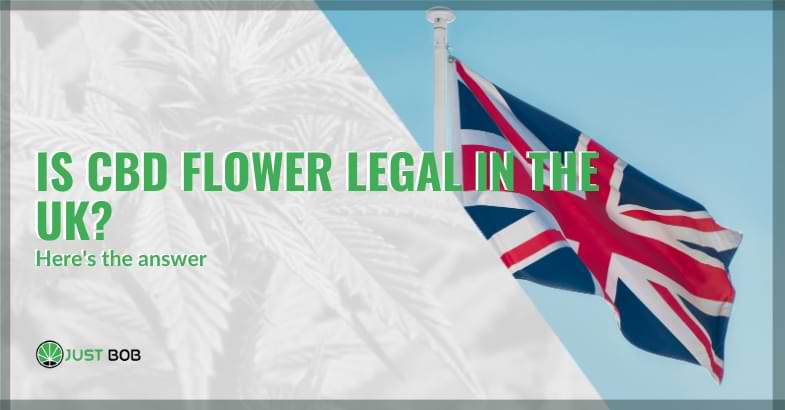Published on: 21/09/2023
So, is CBD legal in the UK and, if so, in what forms and under what laws?
Did you know that around 20% of adults in the UK have used CBD products? This natural substance is gaining ground rapidly, but what does the law say about it? The Food Standards Agency (FSA) recently shed some light on the regulations and restrictions governing CBD in the country.
If you’re looking to understand what makes CBD legal in the UK and what products are available on the market, you’ve come to the right place. In this article, we will explore what is new about the legality of CBD, its possible uses and upcoming developments regarding home production.


Let’s get straight to the point: is CBD flower legal in the UK?
The UK’s Food Standards Agency (FSA) has made several doubts about the CBD market clear.
After 31 March 2021, anyone who has not “submitted a valid application will not be allowed to remain on the market.”
Until then, shops were able to sell the products without problems, but all this seems to lead to an official legalisation of Cannabidiol. Before, it was not even calculated as a foodstuff after the FSA had never authorised any company to trade.
If the product is correctly labelled, safe to ingest and free of elements considered drugs, trade will be permitted.
But that’s more.
The FSA has advised against use by pregnant women, and suggested not to exceed 70 mg daily and to be careful in general. Anyhow, remember that CBD is non-psychoactive, has no side effects, and is very useful in treating symptoms and pains that make daily life difficult, such as arthrosis, stress, and diseases such as Parkinson’s and Alzheimer’s.
Surely in the coming years we will see a worldwide boom in cannabinoids given the openings of major economic powers that sell this unique plant not only as a natural cure but also as a profit motive.
CBD or cannabidiol is completely legal in the UK. It can be bought, sold and consumed in the UK under the law, as long as these products contain less than 0.2% THC and are produced from industrial hemp approved under the Misuse of Drugs Act.
CBD is sold in many different forms, mostly found in physical and online shops such as Justbob. You will find CBD in almost any format, including CBD oils, tablets, tinctures and cosmetic products with CBD; however, for the moment, the sale of CBD flowers is not legal in the UK.
And what about the situation of cannabidiol within the list of novel foods or novel foods?
In the UK, CBD products are classified as novel foods as of January 2019. This means that these products require Food Standards Agency (FSA) approval before they can be legally sold in the UK.
Manufacturers, commercial entities or suppliers can apply for authorisation to sell CBD products using the novel food application procedure, which goes through the stages of validation, risk assessment and authorisation decision.
The FSA examines each application on a case-by-case basis. Once a product is authorised, the authorisation applies only to that product and its specific production methods, uses and testing basis. The reason for this protocol was to end the lack of regulation in the market and to ensure that only authorised products could be sold, which limited the number of cannabidiol products on the market.
Is CBD produced domestically in the UK?
Although a fully legal CBD industry exists in the UK, domestic production is hampered by outdated restrictions imposed on the UK hemp industry. IL Obsolete laws prevent UK hemp growers from harvesting and extracting CBD from the foliage and blossoms of the plant. They allow only the seeds and stems to be used, unnecessarily wasting the most valuable part of the crop and limiting domestic CBD extraction, making the UK dependent on imports.
Then, CBD is widely sold and widely available in headshops or specialised shops throughout the UK. Products are also widely accessible in supermarket chains and health food shops such as Boots, Superdug or Holland & Barrett, which undoubtedly contribute more to normalising the use of the compound.
The research also indicates that what most consumers do is buy their CBD online.
Consider that, according to a recent survey by the Cannabinoid Industry Association, about 20 per cent of British adults have used CBD products. In general, we could say that CBD products are well accepted in British society, embraced by major high street retailers.


What is the UK policy on ‘recreational’ cannabis in general, i.e. containing not only CBD but also THC?
Recreational use of cannabis is banned in the UK.
THC is only permitted in products for medical consumption, prescribed by a doctor. In particular, cannabis is classified as a Class B and Schedule 2 drug. Possession of cannabis without a prescription can lead to up to five years in prison.
This means that it is possible to obtain medical cannabis.
In fact, there are around 20 specialist clinics in the UK, along with private medical specialists who prescribe independently through tools such as the Cannabis Directory or tools such as Script Assist.
The list of diseases for which cannabis can be prescribed is quite extensive, although the likelihood of prescription varies depending on the level of evidence and the willingness of the doctor. Here is a list of illnesses for which cannabis may be prescribed in the United Kingdom, including anxiety.
Read also: Medical uses of cannabis: here are the fact
The bottom line
In conclusion, CBD or cannabidiol is indeed legal in the UK as long as it meets specific criteria. To be considered legal, CBD products must contain less than 0.2% THC and be produced from industrial hemp approved under the Misuse of Drugs Act. The Food Standards Agency (FSA) has taken steps to regulate the CBD market by classifying CBD products as novel foods since January 2019. This means that any CBD product sold in the UK requires FSA approval through a novel food application process.
While CBD is legal and widely available in various forms, including oils, tablets, tinctures, and cosmetics, the sale of CBD flowers is not permitted in the UK. The FSA has also provided guidelines on CBD use, advising against consumption by pregnant women, recommending not to exceed 70 mg daily, and urging general caution.
Regarding ‘recreational’ cannabis containing THC, its use is strictly prohibited in the UK, and possession without a prescription can lead to legal consequences. Medical cannabis, however, is permitted for specific medical conditions and can be prescribed by specialist clinics or private medical professionals.
Despite outdated restrictions hindering domestic CBD production, the UK’s CBD industry is thriving, with products widely available in physical stores and online shops such as Justbob. The acceptance and popularity of CBD products in British society continue to grow, with major high street retailers contributing to the normalization of CBD use.
In conclusion, the legal status of CBD in the UK is well-defined, and while THC-containing cannabis is restricted for recreational use, medical cannabis is accessible through specialized clinics and private medical professionals for certain approved medical conditions. As research and public acceptance of cannabinoids increase, the CBD industry is expected to continue flourishing in the UK.
💡Takeaways on CBD and its legality in the UK
- Legality of CBD: CBD or cannabidiol is completely legal in the UK, provided the products contain less than 0.2% THC and are produced from industrial hemp approved under the Misuse of Drugs Act.
- Forms of CBD: CBD is available in several forms, including oils, tablets, tinctures and cosmetic products containing CBD. However, the sale of CBD flowers is not legal in the UK.
- Novel Foods: CBD products are considered ‘novel foods’ as of January 2019 in the UK. This means that they require Food Standards Agency (FSA) approval before they can be legally sold in the country.
- Domestic production: Although the CBD industry is completely legal in the UK, domestic production is limited by outdated restrictions that only allow the use of the seeds and stems of the hemp plant. This makes the UK dependent on CBD imports.
- Recreational cannabis: Recreational use of cannabis, containing both CBD and THC, is prohibited in the UK. THC is only permitted in products for medical use, prescribed by a medical specialist. Cannabis is classified as a Class B and Schedule 2 substance, and illegal possession can result in up to five years in prison.
- However, it is possible to obtain cannabis for medical use based on a prescription from licensed specialists or clinics. It is important to note that CBD has gained popularity in the UK, both as a natural remedy for symptoms and pain, and because of its availability in various forms and outlets, including online trade. Its social acceptance is increasing, and while CBD is legal and widely available, recreational use of cannabis containing THC remains prohibited and subject to severe penalties.
FAQ on CBD and its legality in the UK
Is CBD legal in the UK?
Yes, CBD or cannabidiol is completely legal in the UK. It can be bought, sold and consumed in the UK as long as the products contain less than 0.2% THC and are produced from industrial hemp approved under the Misuse of Drugs Act.
Are CBD flowers legal in the UK?
No, the sale of CBD flowers is not currently legal in the UK. CBD is sold in many different formats, mainly in physical shops and online, but CBD flowers are not yet licensed for sale.
What is the UK policy on ‘recreational’ cannabis containing THC?
Recreational use of cannabis is prohibited in the UK. THC is only permitted in products for medical use prescribed by a doctor. Cannabis is classified as a class B drug and schedule 2. Possession of cannabis without a prescription can result in up to five years in prison. Medical use of cannabis is possible, with around 20 specialist clinics in the UK and private medical specialists who can prescribe it according to the specific circumstances of patients.









